Welcome to the February 2016 Edition of the PE Playbook. The PE Playbook is a review of blog posts over the past month that are specific to Physical Education or Youth Sport. Its about bringing these blog posts into a format that is easy to find, use and share. Hopefully this will result in more PE Teachers (and others) reading them and engaging with them. If you have any feedback about the presentation or content of the PE Playbook then please let me know in the comments section of this post or via @ImSporticus. Previous Editions of the PE Playbook can be found here.
This month the honour goes to Mark Upton. Mark is the Coaching Science Manger at English Institute of Sport and is heavily influenced by dynamical systems, complexity theory and non-linear pedagogy. He blogs regularly via My Fastest Mile and is part of a trio of people (along with Al Smith and Andrew Gillott) who have set up the Relearn community, which has had a significant influence on my thinking to teaching Physical Education.
Mark has been prestigious this month with his blogging, kicking off February in style with The Learning Landscape which explores, through the work of Diana Stirling, the contractions of learning and how a complex adaptive systems could give us a flexible learning environment. The downloadable PDF document at the end of the blog is well worth your time. In Falling Prey to the Data, Mark challenges the mantra “if you can’t measure it, you can’t manage it” and that just because you can produce data that doesn’t make an “intervention” evidenced based. Any such actions must, in Mark’s mind, be based on sound and consistent theoretical models of learning. He follows up with NOT Falling Prey to The Data which muses that if data is to be used to improve performance, then we need to be guided by what we know about both individual and team behaviours.
(Learning) Space Invaders may just about be my favourite post of all time. A visual representation of how learning spaces can be invaded and taken over by ‘high performance’ and outcomes. From my point of view this happens regularly within PE Departments, that we are so taken up with meeting metrics and implementing interventions, we never protect that learning space needed for real development to occur. Mark finished the month off with the post Narratives of Excellence and how a counter narrative is appearing, not just in sport, but also other areas of life. Narratives of excellence that are based on not having all the answers, being comfortable with being vulnerable and embracing complexity rather than reducing it. Mark finishes by making the point that this message is powerful and perhaps should be ‘amplified’ to the young people who inhabit our lives.
On top of blogging Mark shares his thoughts and ideas through webinars (Non-linear pedagogy), google hangouts (The Skill Acquisition Project) and podcasts (Interview on the Perception Action Podcast). Check them out and get connected.
‘Boys and girls can’t play together nicely’: the lessons of gendered sports by Lucy Mycroft-Smith questions whether the answer to keeping girls and boys separated in physical activity and sport is as binary as we assume?
Growth/Fixed mind-set? It is really about learning by Mark O’Sullivan challenges the practice of praise that has been implemented due to Carol Dweck’s popular work and asks how we can better connect it to learning.
Future of Coaching in a Changing World by Amy Price via the ACHPER blog fuses the key ingredients that make video gaming so popular to game design in Game Based Approaches to teaching sport in Physical Education.
A schools approach to developing student wellbeing is a post detailing the starting point of Graham Mallen’s implementation of trying to make student wellbeing development a corner stone of his school’s educational experience. I look forward to hearing how these initiatives further evolve. A Values Based Approach to Education is his follow post exploring one of his approaches in more detail.
“the less travelled path of the learner’s journey” by Al Smith is a deeply personal and vulnerable account of self discovery, which reflects the patriarchy found in organisations which stifles both learning and creativity.
The Radical Tip that Might Keep Your Daughter in Sports (and Place Her in the C-Suite…) from Anne Josephson offers a key piece of advice to parents, but applicable to teachers and coaches, on how to keep girls (and boys in my mind) involved and engaged with sport for longer.
Joining in – is it ever OK? is another challenging blog from Lee Andersen who explores through scenarios whether it might be beneficial for the students if the teacher joins in.
Where have all the skills gone? is an open letter to PE Teachers by Artie Kamiya how asks what has happened to skill acquisition as a central focus to physical education.
Learning from Learners’ Learning… by Krissi Paterson is a wonderful post about learning as a teacher and promoting curiosity and challenging our helps beliefs and assumptions.
Horst Wein: The 10 Most Important Conditions To Develop Creative Potential Within Each Child by Get Sport IQ is a post that clearly defines the Horst Wein’s, who recently passed away, philosophy to teaching sport to children.
- Rethinking the Teaching and Coaching of Games Part 1
- Rethinking the Teaching and Coaching of Games Part 2
- The Story of Alice and George
- Quality Assessment Practices for PE
- My Physical Education SOLO Taxonomy Journey Continues
- Open Activities in PE – Allowing Inclusion and Accessibility for all
- Why It’s Crucial For Kids to Enjoy Physical Education
- Introducing #PEChat Workbooks
- Engineered Connections Might Just Improve Performance
- Teaching PE – in rural Uganda (Part 1)
- Teaching PE in Rural Uganda – Part 2
- Ending McDonald’s sponsorship of UK football
- National PE TeachMeet Initiative 2016
- How I Teach: Bart Jones
- Looking After Oneself
- Biking in PE: To Ride or Not to Ride?
- Soccer-Tennis Mom
- Holiday Thoughts…
- Striking and Fielding – One of my favourite games
- Does quality PE sit within physical literacy?
- The Benefits and Joy of Routine in PE
- Well done for not punching anyone! The irony of behaviour reward systems
- On Dodgeball
- The Best Parts of My Week – 1/25/16–1/29/16
- Dance in PE
- The Best Parts of My Week: 2/1/16–2/5/16
- Basketball Drills – Dribbling & Ball Handling
- Hokey Pokey
- The Best Parts of My Week – 2/8/16–2/12/16
- The Evolution of ‘Before-School-Fitness’
- The Best Parts of My Week – 2/15/16–2/19/16
- Basketball Drills – Passing and Shooting
- Creating Self-Sufficient Learners
- My favourite Fitness Session – The 1000 Challenge!
- Teaching Personal and Social Responsibility: Thoughts from NZ
- Outdoor Ed: Experiential Learning Theories applied in team challenge
- Teaching Transition in PE – The ‘Game with no Name’
- Experiences and Ideas for Sport Education
- Teaching Games for Understanding (TGfU) – Are all coaches playing the game?
- Tennis Beginner to Tennis Rally – in 1 hour!
- Taking things into your own hands!
- GoNoodle – 500,000 Teachers Are Using It, Are You?
- Connecting The Dots
- Are you serious?! Why should I do that?
- The PE Apps Roulette
- My phone can do that?
- WHATS ON YOUR SCREEN ?
- How Voxer changed my P.E. Professional Development Life!!!
- Warming up to IT integration in PHYS ED
- Terrible Apps for HPE Teachers
- Blog, Blog, Blog!
- What may the future hold?
- WHATS ON YOUR SCREEN ? #2
- Using HIIT Workouts in PE
- myPEexam and Me!
- Can I be that little bit better at……using simple strategies to make content stick?
- Top Trumps, Morph Suits, Plickers and more – making GCSE PE theory fun
- The philosophy of monism in physical literacy
- The Rocky Road of Excellence
- New study recommends that kids should specialise early, do 10,000 hours and be genetically tested to assess sport suitability*
- Reflections on physical activity intervention research in young people – dos, don’ts, and critical thoughts
- Stack 52 – Functional Bodyweight Exercises Take us Back to Basics!
- Episode 49 – Virtual Guest Speakers
- Changing the Game Interview FAN 960 – Rob Kerr with John O’Sullivan
- Interview with Stuart Armstrong, Player Pathways Manager with the Rugby Football Union
- Episode 50 – 50 Tech & PE Ideas from Teachers Around the Globe
- How Seth Godin Manages His Life — Rules, Principles, and Obsessions
- “PDP Webinar – The Nonlinear Journey”
- The PE Geek – Insights, Advice, Tips and Resources with Jarrod Robinson
- The best game that you’re not playing? | Hula Hut Throwdown
- Tennis Myths
- Coaching Conversations #9 : Liam McCarthy
- From The Office To The Training Ground
- “Best” Means Nothing
- Learning as a Coach
- The Surprising (but Scientifically Backed) Technique to Help Your Athlete Succeed
- How to Teach Your Athletes About Good Sportsmanship
- Behaviour Training (BT) vs. Decision Training (DT) Part I
- 7 Steps to Creating a Training Programme That Works
- Three key lessons for young coaches
- What Athletes Remember Most About Coaches
- An Enlightened Decision
- Interview: Todd Beane on TOVO Training
- 13 Tips (plus a bonus one) for Coaching the Emotionally Volatile Athlete
- Coaching to Create Thinking Footballers
- I Found It Interesting #10
- How to Develop Mental Toughness in an Athlete
- How to Win Young Athletes Over in the First 5 Minutes
- To My Son’s Soccer Coach
- Cuddles not Team Huddles
- The #1 Way to Influence Your Athletes
- No coaching from parents during matches helps develop creative footballers
- Gymnastics: Begin Here, Go Anywhere
- What Happens When You Lose?
- Getting Better at Getting Better
- The Importance of Triangulation | Getting Parents On Board
- The runner, the coach and the disease – A story of genuine grit that brought me to tears
- Changing the nature of competition
- How to successfully manage a young athlete’s emotions
- Sporting Dilemma
- 9 Common Thinking Biases
- An Inspirational Chance Meeting
- Possibilities
- Sport is an Agent of Social Change
- The specialist–generalist continuum
- Where the ‘elite’ kids shouldn’t meet
- Pressure? What pressure? Football referees have more support from the media than we think
- Lessons in Leadership Straight from the Sports Field
- Some Thoughts on Changing Practice
- 9 Ways For Students to Overcome FOMO
- The Austin Hatch Story
- Four Neuromyths – Debunked




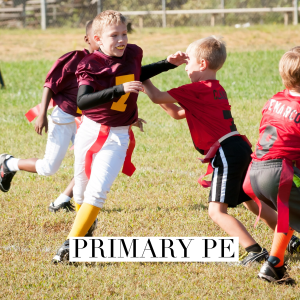
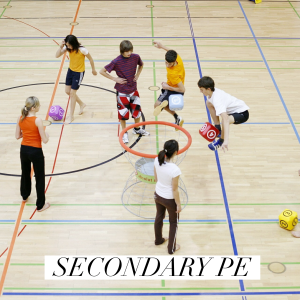
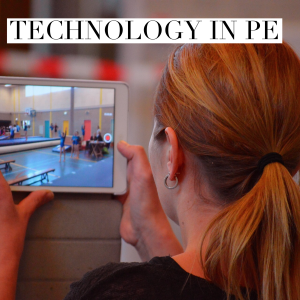
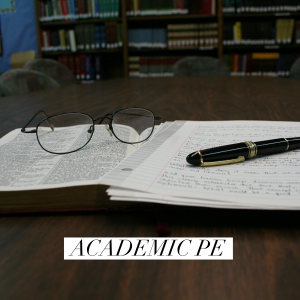

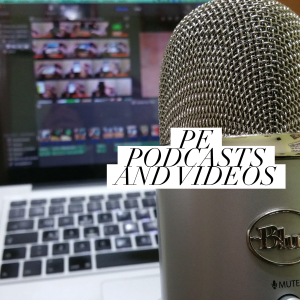
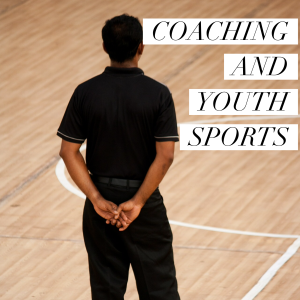
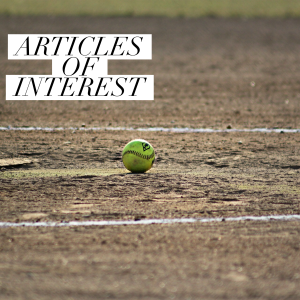

Reblogged this on The Echo Chamber.
LikeLike
I love this! Thank you for putting all these wonderful blogs together. I’ve recently started a blog everythingpeandhealth.com and hope to compile some great ideas as well. I’ll make sure to share your site with colleagues to inspire them.
LikeLike
Hi Natasha. Thanks for the message. I have now followed your blog and will be updated with new posts. Do you happen to be on twitter as well? If so what is your handle?
LikeLike